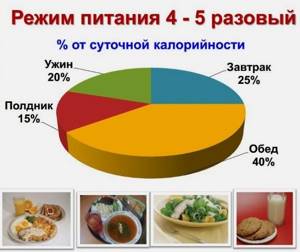Modern science has already accumulated quite a large amount of knowledge about therapeutic fasting. This means that we will finally understand what the consequences of not eating are.
The popular science program “Food Living and Dead” has done a really great job on this topic. Leading scientists, doctors and nutritionists from around the world were interviewed. We supported the obtained data with real stories of people who fasted for different periods (from 10 to 101 days). This was not the usual one-sided review, where they try to cover only what is desired, but a real meta-analysis, which objectively describes both the positive and negative facts about fasting.
Definition of fasting
What makes fasting seem new is that, given all the nutritional recommendations, the easiest thing to do is just not eat. Of course, fasting is not the same as starving yourself , which is what many people think of when they hear “starve.” Yet fasting is not a diet. The literal definition of fasting is to abstain from food and drink for a certain period of time. It has been around for thousands of years as spiritual fasting is part of many religions. But in this context, fasting is seen as simply a change in eating habits.
Instead of three meals a day or several small meals throughout the day, you will have a specific window of time. When you eat, whether it's a few hours a day or certain days of the week. During this time you can eat whatever you want. Of course, within reason.
If you're eating processed foods and potato chips, you're unlikely to reap the benefits of fasting. It's a good idea to initially examine your diet before attempting a fast. But if you practice fasting and eat whole foods rich in fruits, vegetables, lean proteins, healthy fats and dairy, you will see changes. And those random splurges on chocolate or cheese won't have as much of an impact. As if you were on a calorie restricted diet.
The beauty of fasting is that there is no one “right” way to do it. In fact, there are several types that are popular.
How to avoid going hungry?
During fasting, your psychological attitude is important.
In addition to hunger, you may experience general poor health:
- weakness;
- headache;
- nausea.
The result of the procedure can only be assessed after a withdrawal period; you need to force yourself to follow the technique. An early interruption can ruin all your efforts.
The following recommendations will help overcome hunger:
- Physical exercise relieves the feeling of hunger by providing the blood with a portion of glucose.
- You can rinse your mouth with a decoction of mint, parsley or chamomile - the brain will perceive this as eating.
- Reading, obtaining information, and hobbies will help distract you from unpleasant feelings.
- Thoughts about food will aggravate the feeling of hunger, thoughts about the goal and the result will help to cope with it.
- “The flesh is stupid” - Paul Bragg repeated this phrase during fasting.
- A few successful examples (taken from the Internet) will help you resist in moments of temptation.
- Daytime nap for 20 minutes. will relieve the feeling of hunger for 2-3 hours.
If, nevertheless, a breakdown occurs, it is necessary to follow the exit method, following the prescribed diet.
Different Types of Fasting
1. Intermittent fasting
This type of fast is also known as cyclic fasting. Intermittent fasting is the catchphrase for eating (not eating) intermittently. In fact, almost all of the fasting methods below are types of intermittent fasting! Typical intermittent fast times range from 14 to 18 hours. The longest period any of these plans will require you to abstain from solid food is around 32-36 hours.
2.Time-limited meals
If you practice time-restricted eating , you will abstain from food for 12-16 hours. During meals, you can eat as many of your favorite healthy foods as you want. This is one of the most common fasting methods.
Time-restricted eating is quite simple to implement. For example, if you finish dinner at 7 pm, you won't eat anything else until at least 7 am. If you want to take it a step further, you can extend your no-food time until 11 or 12 p.m. This is a good way to introduce fasting into your lifestyle and experiment without making any major changes.
3. Fasting 16/8
Basically another name for time-restricted eating. Here you will fast for 16 hours a day and then eat for the remaining eight hours.
4.Alternative day of fasting
Another type of intermittent fasting, alternative day fasting. It forces you to strictly limit the number of calories you consume on fasting days. And then eat according to the contents of the stomach on days without fasting. Food is not completely restricted, but you will eat approximately 25% of your normal caloric intake. For example, a person eating 2,000 calories would cut back to 500. An alternative day of fasting is not necessarily a long-term plan because it is difficult to stick to. However, it can help you get into a healthy movement habit.
5.Diet 5:2
This type of fasting is very similar to alternative daytime fasting. Except that you can eat here five days a week. On the remaining two days, calories are limited to 500-600 per day.
6.Diet Warrior
Here you should stick to fruits and vegetables during the day, and eat a variety of foods in the evenings.
7.Daniel's fast
This is a type of spiritual fasting. Based on Daniel's experience in the biblical Book of Daniel, the Daniel Fast is a partial fast. Here, vegetables, fruits and other healthy whole foods, except meat, dairy products, grains (if they are not sprouted) and drinks (coffee, alcohol and juice) are excluded. Most people do this fast for 21 days to experience a spiritual breakthrough. And also have more time to think about your relationship with God. Or simply feel closer to what Daniel experienced in his time.
Related: The Amazing Healing Food Diet
The right way out
You can ruin not only the results, but also worsen your health by incorrectly exiting fasting. This process is reverse. It allows you to restore the normal functioning of systems and organs. During the refusal of food and water, the body switches to internal reserves, and during the recovery period it again adjusts to external sources. To ensure the correct output you must:
- carry out a fractional diet (up to 6 times) in small portions;
- exclude salt, fats, spices, and heavy protein foods from the menu as long as possible;
- the number of days of hunger strike should be equal to the time of their release;
- be moderate in food even after breaking fast, which will allow you to maintain good spirits and good health.
How to start fasting quickly - 4 steps
Ready to try fasting? Here's how to make it easier.
1.Decide what type of fasting you are going to do.
The easiest way is to eat with a time limit, starting with a 12-hour fast. If after a few days you feel well, you can increase the fast to 14 hours or up to 18. However, it is more effective to fast longer than this time.
Have you fasted before? Then you might want to try a more ambitious fast, such as alternative day fasting.
2.Set some goals for yourself.
What do you want to achieve by fasting? Lose weight, be healthier, feel better, have more energy? Write this down and place it in a place where you will see it frequently during your fast.
3.Make a menu and stock up on food.
Before you start fasting, decide when and what you will eat. Planning this ahead of time takes the pressure off. Especially if you feel like you could eat everything you see. As you get used to fasting, you may find that there is no need to sort foods in advance. However, having an assortment of healthy foods waiting in the refrigerator makes fasting much easier.
4.Listen to your body.
Fasting may take some getting used to as the body gets rid of old habits and learns new ones. But listen to your body! If you are 10 out of 16 hours into fasting mode and feel like you need to snack, then do it. If your fast time has ended but you are not hungry yet, wait until you are hungry. There are no hard and fast rules here. You may find it helpful to write down a sentence or two about how you feel each day. Or you may find that at certain times of the month or year, different types of fasting work better for you.
Compliance with time intervals
The time interval of 2–2.5 hours must be observed for a number of reasons:
- The digestion process takes exactly 2–2.5 hours on average;
- shorter intervals will lead to overeating due to a lack of enzymes produced;
- the body needs to be rebuilt from consuming internal resources to breaking down food;
- consistency of intervals is necessary for the proper activation of digestive activity.

Symptoms to immediately break your fast:
- fainting conditions;
- arrhythmia;
- critical blood pressure values;
- severe internal pain.
In such cases, it is necessary to immediately proceed to the exit stage, observing fractional meals and diets.
Fasting at home requires increased attention to your condition, especially if done for medicinal purposes. For periods longer than 3 days, it may be necessary to interrupt the procedure. This should only be done if you feel extremely unwell.
General questions about fasting
How long should I fast?
There is no specific amount of time to fast. Although, as mentioned earlier, a typical intermittent fast is between 14 and 18 hours. Instead of focusing on how long you should fast, it's best to keep a few things in mind about fasting:
- If you're really hungry, eat something. Otherwise, you will experience: a) hunger; b) stress from hunger; c) hunger and stress.
- If you are in the early stages of improving your diet and choosing whole foods, wait a while before starting a fast. This is essential so you don't have to worry about it anymore. Focus on eating healthy, nutritious foods.
- Are you training for a big event such as a marathon or triathlon? Now is probably not a good time to fast. Talk to your trainer and doctor first.
- And listen to your body again!
What liquids am I allowed to drink?
It depends on the circumstances. If you are on a time-restricted fast and you are not eating, it is best to stick to low-calorie or no-calorie drinks. For example, water, coffee (without milk) and tea. If you are on an alternative diet or something similar, even during low-calorie hours, you can drink whatever you want. However, remember that all calories will count. Would you rather spend 100 calories on an apple or a glass of milk? This is your choice.
It is better to abstain from alcohol while fasting.
Is it possible to exercise while fasting?
As a rule, you can exercise while fasting. You may even find that when you eat on a time-restricted basis, you feel more energized in the morning to start your workout. However, with more restrictive fasting, low-calorie days can make you feel sluggish. If so, perhaps consider gentle yoga or going for a walk. As always, listen to yourself. You can always zoom out or zoom in depending on how you feel.
TOP 7 health benefits of fasting
1. The benefits of fasting for the human body - fasting is an excellent way to lose weight.
There are studies that support fasting as an excellent means of weight loss. One 2015 study found that alternative daytime fasting reduced body weight by 7% and body fat by 5 kg.
Another study was conducted at the University of Southern California. It showed that when 71 adults did a five-day fast (consuming between 750 and 1,100 calories a day) every three months, an average of 2.5 kg was lost. This reduced inflammation levels and reduced waistline and overall body weight without loss of muscle mass. If you want to lose weight and lose belly fat , fasting can even be irregular.
2.The benefits of fasting for the human body - fasting promotes the secretion of human growth hormone.
Human growth hormone is naturally produced by the body but remains active in the bloodstream for only a few minutes. It is effectively used to treat obesity and helps build muscle mass, which is important for burning fat. HGH also helps increase muscle strength, which can also help improve your workouts. Combine them together and you have an effective fat burning machine on your hands.
3.The benefits of fasting for the human body - fasting can be beneficial for athletes.
Fasting has been found to have a positive effect on body weight as well as other health indicators in professional athletes. This is because fasting can effectively eliminate excess fat while optimizing muscle growth through the release of growth hormone. Traditionally, athletes are advised to consume high-quality protein within half an hour of finishing training (post-workout nutrition). This simultaneously builds muscle and reduces fat. Fasting is recommended on training days, and eating on other days.
4. The benefits of fasting for the human body - fasting is great for normalizing insulin sensitivity.
When the body receives too many carbohydrates and sugar, it can become insulin resistant. This often paves the way for a variety of chronic diseases, including type 2 diabetes. If you don't want to go down this route, it is important that your body remains sensitive to insulin. Fasting is an effective way to do this.
A study published in the World Journal of Diabetes found:
“Intermittent fasting in adults with type 2 diabetes improved key indicators for these people, including their body weight and glucose levels.”
Another study found that intermittent fasting was as effective as calorie restriction in reducing visceral fat mass. As well as insulin starvation and insulin resistance. If you struggle with prediabetes or insulin sensitivity, intermittent fasting may help normalize the situation.
5. The benefits of fasting for the human body - fasting can normalize ghrelin levels.
What is ghrelin ? In fact, it is also known as the hunger hormone because it is responsible for signaling the body that you are hungry. Dieting and really restricting your food intake can actually increase ghrelin production. This will make you feel hungrier. But when you fast, you actually normalize your ghrelin levels.
After all, you won't feel hungry just because it's your regular meal time. Instead, the body will become more adept at recognizing when it actually needs food.
6.Benefits of fasting for the human body - Fasting can reduce triglyceride levels.
When you eat too much bad cholesterol, your triglyceride levels can rise, increasing your risk of heart disease. Intermittent fasting actually lowers bad cholesterol by reducing triglyceride levels. Another interesting thing to note is that fasting does not affect the level of good cholesterol in the body.
7. The benefits of fasting for the human body - fasting can slow down the aging process.
Early studies in rats linked intermittent fasting to increased lifespan. Although this has not yet been proven in humans. One study found that intermittent fasting reduced body weight and increased lifespan in rats. Another experiment showed that a group of mice that intermittently fasted actually lived longer than the control group. Although they were heavier than mice that did not starve. Of course, it's not clear that the same results will occur in humans, but the signs are encouraging.
Precautions regarding fasting
The health benefits of fasting are extremely attractive. However, it is not suitable for everyone. People with hypoglycemia and diabetes should avoid fasting until blood glucose and insulin levels are normal. Pregnant and breastfeeding women should absolutely not fast, as this can have a negative impact on the baby.
If you are taking medications or have a chronic illness, it is best to consult your doctor about introducing fasting into your lifestyle. However, for most, intermittent fasting can be truly beneficial for weight and health management.
The benefits of fasting for the human body - final thoughts
- Fasting is a change in nutritional pattern. Instead of having a set of dishes and meal times, you will have a window for eating.
- There are many types of fasting. "Intermittent fasting" is the most common phrase, covering several different types of fasting. Including alternating daily and time-restricted eating.
- The health benefits of fasting range from increased weight loss to normalized insulin sensitivity. And perhaps even slowing down the aging process.
- Although fasting is beneficial for most people, if you are pregnant or breastfeeding, fasting should be avoided completely. If you have diabetes, a serious medical condition, or are taking prescription medications, it is best to consult your doctor before starting a fast.
Fractional nutrition and small portions
Fractional meals include:
- small portions;
- eating 5-6 times a day;
- equal intervals between meals.

Each meal should start with liquid - this can be juices, vegetable broths, oatmeal broth, whey or water. The longer the fasting process, the larger part of the diet should be liquid.
The intervals between meals should be equal and be 2–2.5 hours. Each portion must be chewed thoroughly. The last dose should be taken no later than 3 hours before bedtime.










